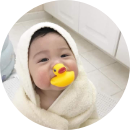II. Read the following passage and choose the best answer for each blank.
Leisure in Britain
The British spend their free time in different ways. People generally use it to relax, but many people also (1) ……………… voluntary work, especially for charities.
People spend a lot of their free time in the home, where the (2) …………… popular leisure activity is watching television, the average viewing time being 25 hours a week. People often (3) ……………… programs on video so that they can watch later, and video recorders are also used (4) ……………… watching videos hired from a video rental shop.
Reading is also a favourite way of spending leisure time. The British spend a lot of time reading newspapers and magazines.
In the summer gardening is popular, and in winter it is often replaced by "do-it- yourself", (5) ……………… people spend their time improving or repairing their homes. Many people have pets to look after; taking the dog for a daily walk is a regular routine.
The extra leisure time (6) ……………… at weekends means that some leisure activities, many of them to do with sport, normally (7) …………… place only then. Traditional spectator sports include football, cricket, horse racing, motor racing and motor cycle racing. Popular forms of (8) …………… are swimming, tennis, ice-skating or roller skating, cycling, climbing, and hill or country walking.
Families often have a "day out" at the weekend, especially in summer, with a (9) ……………… to a local event such as a festival, fair or show. Young people especially go to clubs and discos, while people of all (10) ……………… go to the theatre, the cinema, art exhibitions and concerts.
1. A. make B. do C. play D. go
2. A. many B. more C. much D. most
3. A. record B. scan C. print D. power
4. A. with B. for C. on D. about
5. A. what B. why C. when D. while
6. A. available B. probable C. abundant D. exclusive
7. A. drag B. bring C. carry D. take
8. A. strength B. exercise C. athletics D. presentation
9. A. voyage B. journey C. visit D. road
10. A. ages B. numbers C. years D. groups
1. A. make B. do C. play D. go
2. A. many B. more C. much D. most
3. A. record B. scan C. print D. power
4. A. with B. for C. on D. about
5. A. what B. why C. when D. while
6. A. available B. probable C. abundant D. exclusive
7. A. drag B. bring C. carry D. take
8. A. strength B. exercise C. athletics D. presentation
9. A. voyage B. journey C. visit D. road
10. A. ages B. numbers C. years D. groups












